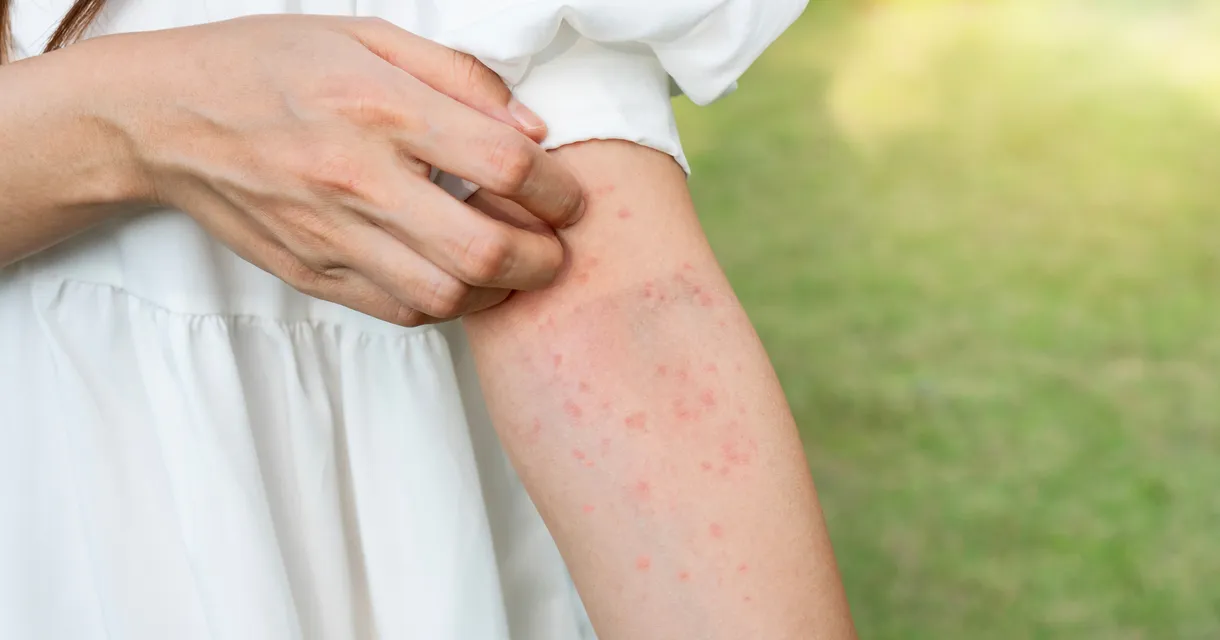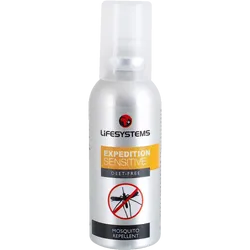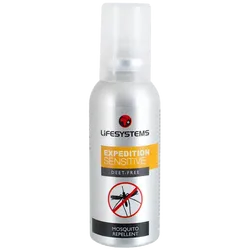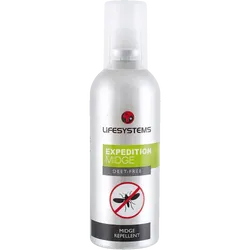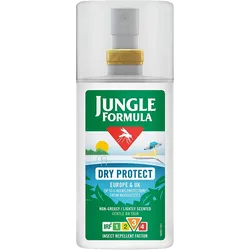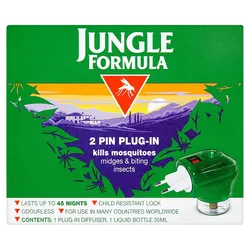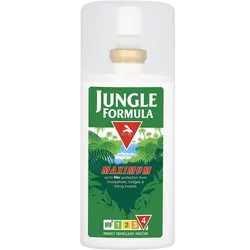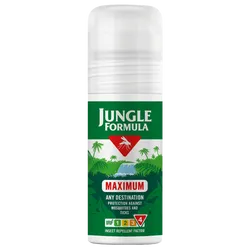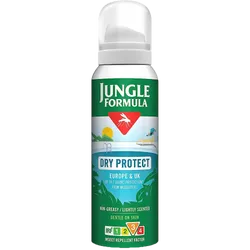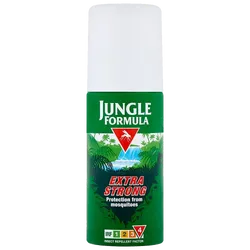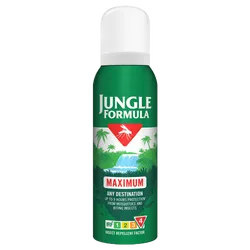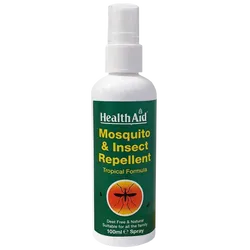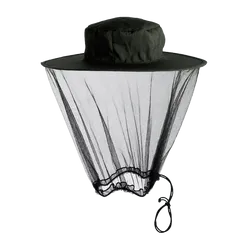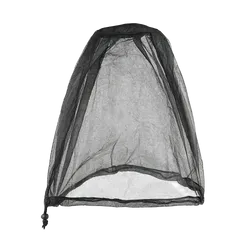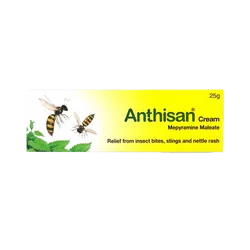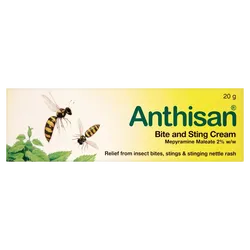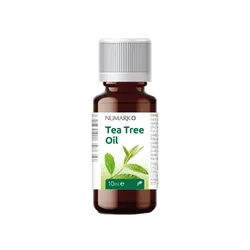Enjoying the outdoors often comes with an unwelcome guest: insect bites and stings. From the familiar buzz of a mosquito to the unexpected prick of a wasp, these encounters can turn a pleasant day into an itchy, uncomfortable ordeal. But knowing how to prevent them and treat them effectively can make all the difference.
Insects bite or sting for various reasons – some, like mosquitoes, bite to feed, while others, like wasps and bees, sting as a defence mechanism. The reaction you experience, typically redness, swelling, itching, or pain, is your body's response to the insect's saliva or venom. While most bites and stings are harmless and can be managed at home, understanding the common culprits in the UK and their typical reactions can help you react appropriately and effectively. Our Weldricks pharmacists are here to guide you through prevention strategies and the best ways to soothe those irritating symptoms.
Imagine enjoying your garden, a picnic, or a holiday without the constant worry of itchy bites or painful stings. With the right knowledge and products, you can significantly reduce your discomfort. Weldricks Pharmacy offers a comprehensive range of solutions to help you both protect yourself and find relief when a bite or sting does occur. From effective insect repellents to soothing creams like Hydrocortisone 1% Cream for reducing inflammation, and antihistamine tablets for widespread itching, we have trusted remedies to hand. Our friendly team is dedicated to helping you manage these common summer nuisances, ensuring your comfort with free UK delivery over £40.
Ready to tackle insect bites and stings confidently? Read on for our expert advice on prevention and treatment, and explore our range of effective relief products.
Common UK Insect Bites and Stings and Their Symptoms
- Mosquito Bites: Often appear as red, itchy, raised bumps that swell up quickly. The itch can be intense.
- Midge Bites: Similar to mosquito bites but usually smaller and can appear in clusters, particularly around exposed skin in damp areas. Very itchy.
- Horsefly Bites: Can be very painful, leading to a large, red, swollen bump. They might also cause a raised, red rash or even dizziness and wheezing in sensitive individuals.
- Bee Stings: Usually leave a barbed sting embedded in the skin (which should be removed carefully). The area will be painful, red, and swollen.
- Wasp Stings: Do not leave a sting. Cause sharp pain, redness, and swelling. More painful than bee stings for some.
- Spider Bites (UK): Most UK spiders are harmless, but some bites can cause a red, swollen, itchy bump, sometimes with a small blister. Reactions vary.
- Flea Bites: Often appear as small, itchy red spots, sometimes in lines or clusters, typically around ankles and lower legs.
- Tick Bites: Often go unnoticed at first but can cause a small red bump. Ticks can carry diseases like Lyme disease, so it's very important to remove them promptly and correctly.
Effective Prevention Strategies
The best way to deal with bites and stings is to avoid them altogether!
- Use Insect Repellents: Products containing DEET or Icaridin are highly effective. For example, explore Lifesystems Expedition Max Insect Repellent Spray before heading outdoors, especially in rural areas or at dusk.
- Cover Up: Wear long sleeves and trousers, particularly during peak insect activity times (dawn and dusk). A head net like Lifesystems Midge/Mosquito Head Net can be particularly useful at times
- Avoid Strong Scents: Perfumes, scented lotions, and brightly coloured clothing can attract insects.
- Be Mindful of Food & Drink: Sweet drinks and food attract wasps, especially at picnics. Keep food covered and drinks in lidded containers.
- Check Your Surroundings: Be aware of nests (wasp/bee) or areas with high insect activity.
- Use Fly Screens: Install screens on windows and doors to keep flying insects out of your home.
Treating Insect Bites and Stings at Home
Most reactions to insect bites and stings can be managed with simple home remedies and over-the-counter products.
- Clean the Area: Wash the bite or sting with soap and water as soon as possible.
- Remove Stingers (if present): If a bee sting is visible, gently scrape it out sideways with a fingernail or credit card. Avoid squeezing it, as this can release more venom.
- Apply a Cold Compress: A cold pack or ice wrapped in a cloth can help reduce swelling and numb the area.
- Elevate the Area: If a limb is affected, raising it can help reduce swelling.
- Soothing Creams and Gels:
- Antihistamine Creams: Products like Anthisan Bite & Sting Cream can relieve itching and swelling.
- Hydrocortisone Creams: For more inflamed or itchy bites, a mild corticosteroid cream such as Hydrocortisone 1% Cream can reduce redness, swelling, and itching. Always follow package instructions and do not use on broken skin or for prolonged periods without medical advice.
- Oral Antihistamines: If you have multiple bites, widespread itching, or a more severe reaction, non-drowsy oral antihistamines like Loratadine 10mg Tablets or Cetirizine Hydrochloride 10mg Tablets can help reduce the body's allergic response.
- Pain Relief: If the bite or sting is painful, consider taking over-the-counter pain relievers like Paracetamol 500mg Tablets.
When to Seek Medical Attention
While most insect bites and stings are minor, some reactions can be more serious. Seek urgent medical attention if you experience any of the following:
- Signs of a severe allergic reaction (anaphylaxis): Difficulty breathing, wheezing, swelling of the face, lips, or throat, dizziness, feeling faint, or a rapid pulse.
- Signs of infection: Increasing pain, swelling, redness, pus, or a fever around the bite site.
- If you have been stung multiple times: Especially if you are a child or have underlying health conditions.
- If the bite or sting is near your eye or mouth.
- If symptoms don't improve or worsen after a few days.
For any concerns, our professional team at Weldricks Pharmacy is always here to offer advice and help you determine the best course of action.
Find Out More
Explore our full range of solutions to help you prevent and treat insect bites and stings:
